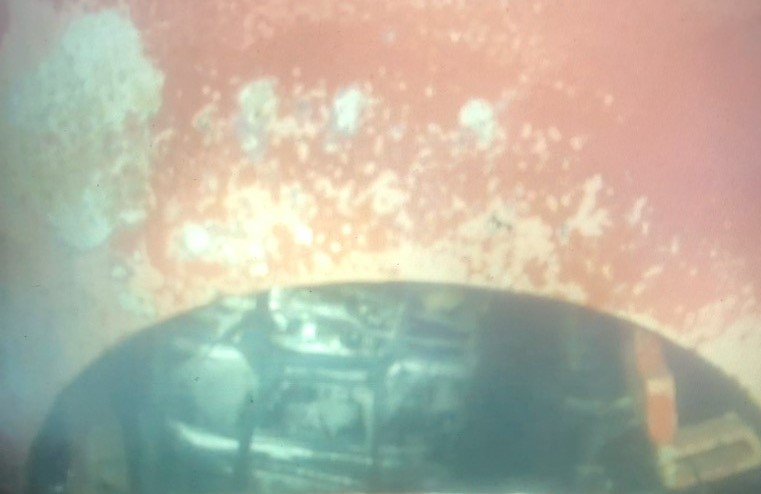Modus operandi busted: Australian Authorities issue warning after 154kg of cocaine seized from hull of cargo ship
The AFP is warning criminals their attempts to hide illicit drugs in the hull of cargo ships continues to be disrupted by law enforcement after another import was seized by authorities in Melbourne.
About 150kg of cocaine concealed inside the hull of a cargo ship was seized after the vessel docked in Melbourne, the second attempted import of its kind in two months.

Australian Border Force (ABF) used an underwater Remotely Operated Vehicle (ROV) at Melbourne’s Appleton Dock to search a vessel, when it arrived from South America to the Port of Melbourne on 7 October, 2023.
The ROV identified a suspicious attachment on the ship’s hull below the waterline.
In the latest seizure, specialist divers from the Victoria Police Search and Rescue Squad retrieved four packages of cocaine wrapped in plastic from inside the sea chest.
The packages contained about 154kg of cocaine from the ship. This amount of cocaine could have equated to about 77,0000 street deals worth an estimated $61 million.*
AFP officers seized the illicit drugs, along with a suspected tracking device – and began an investigation to identify the source of the cocaine and its intended destination.
This area of the ship is not accessible to general crew on the ship.
There have been a number of attempts to conceal border controlled drugs in the hull of cargo ships in recent months.
It includes the seizure of about 200kg of cocaine from the sea chest of another vessel docked in the Port of Melbourne in early August, 2023.
AFP Assistant Commissioner Hilda Sirec said the AFP and its law enforcement partners were closely tracking the rising trend of transnational serious organised crime groups attempting to smuggle illicit drugs into Australia by hiding them underneath the waterline of cargo ships.
“My message to organised crime is that your modus operandi is busted. We know when illicit drugs are coming in and where they are stored,” Assistant Commissioner Sirec said.
“In the past two years alone, a number of high-profile alleged offenders have been deported or extradited to Australia to face serious illicit drug trafficking charges. Some of these offenders are facing sentences of life imprisonment.
“We also want to warn the divers, who are hired by criminal syndicates, to retrieve illicit drugs in the hulls of ships.
“They are also placing themselves in serious danger because retrieval often involves diving through dark, busy shipping channels with limited safety equipment. It’s just not worth risking your life or your future for.”
Assistant Commissioner Sirec said the AFP, ABF and Victoria Police were working together and would not rule out further arrests.
“The focus of our ongoing investigation is identifying and locating the transnational serious organised crime groups responsible for this attempted import, and the people working for them in Australia to receive and distribute these drugs,” she said.
Cocaine is a highly addictive drug which can cause, among other conditions, psychosis, stroke, heart disease, kidney failure along with significant social and financial problems.
“By stopping cocaine and other illicit drugs from reaching our shores, we are helping to keep our communities safe. Illicit drug use contributes to the road toll, child neglect and family violence,” Assistant Commissioner Sirec said.
“The AFP has more than 200 personnel located in 33 countries as part of its international network. AFP members posted offshore work in partnership with foreign law enforcement agencies to detect, deter, prevent and disrupt crime and harm at its source to ensure a safer Australia.”
ABF Commander Maritime and Enforcement South, Clint Sims said cocaine shipments were being seized at Australia’s border at record levels, and the ABF worked in close collaboration with partner agencies to combat this criminal behavior.
“The Australian border is a strategic national asset and remains fundamental to our national security and economic prosperity,” Commander Sims said.
“That is why the ABF works closely with our law enforcement partners to ensure that the border remains a hostile environment for criminals attempting to import illicit drugs.
“With the deployment of advanced technology such as ROVs, the ABF is well-placed to detect, disrupt and deter those who seek to import harmful drugs into Australia.”
Victoria Water Police Inspector James Dalton said working together with the ABF and AFP was vital in detecting and deterring this activity.
“The skills of our members mean we can identify illicit drugs – even if efforts have been made to conceal their origin – and prevent it from reaching the hands of Victorians,” Inspector Dalton said.
“This sends a strong message that if you are attempting to import drugs or illegal goods via ships into Victoria we will detect them.
“Anything we can do to deter this activity we will do and will ensure the people involved are held to account.”




